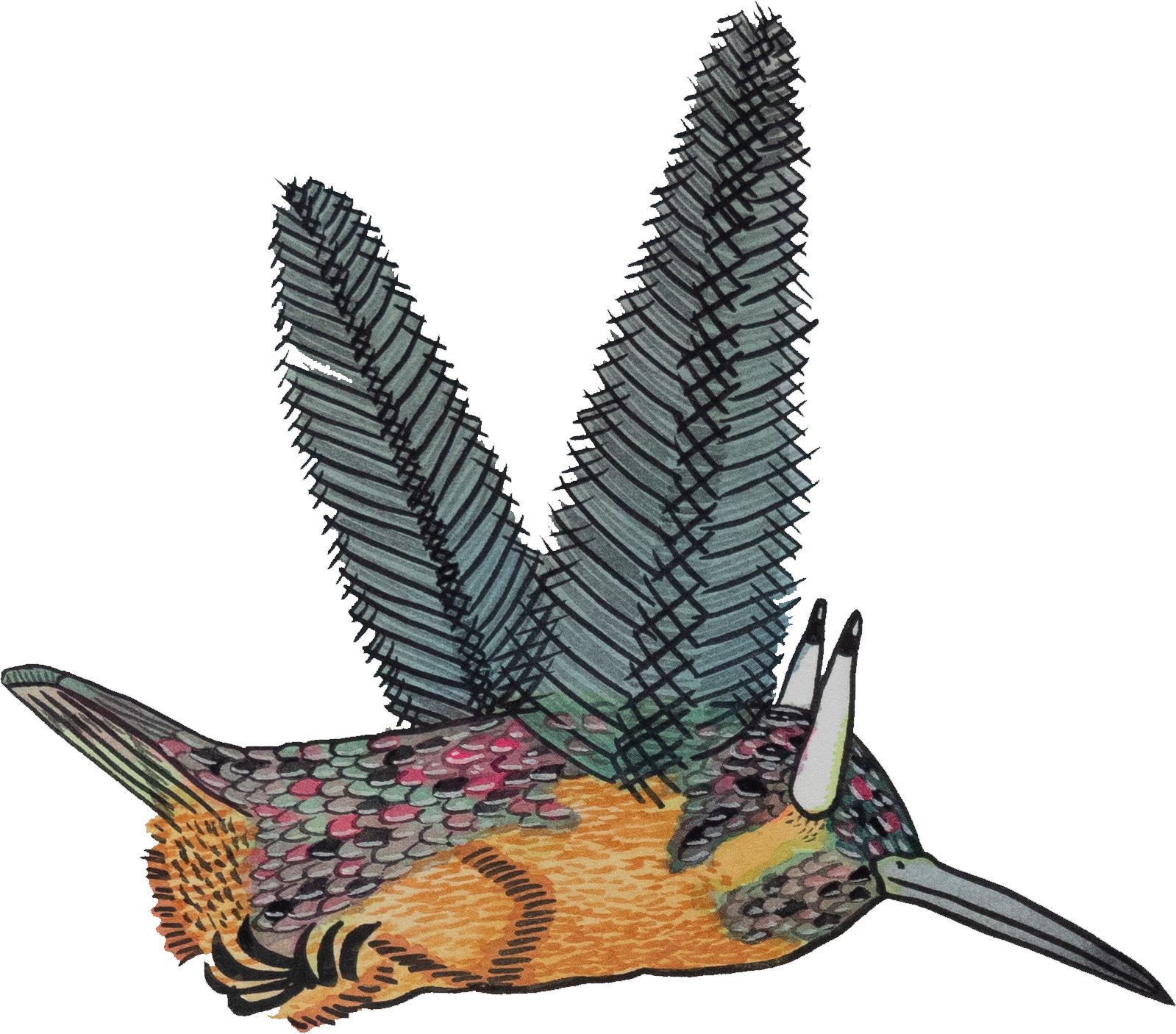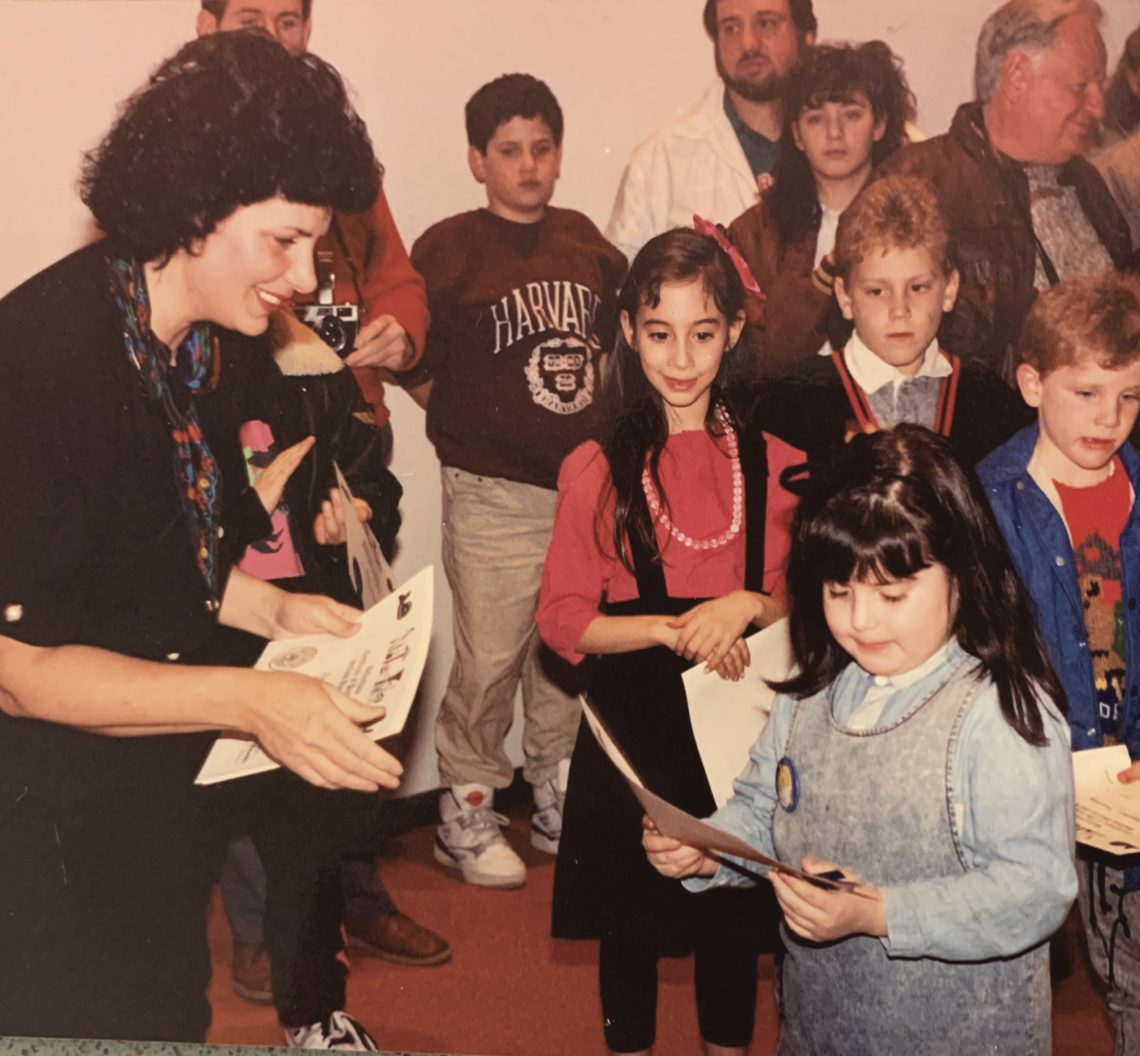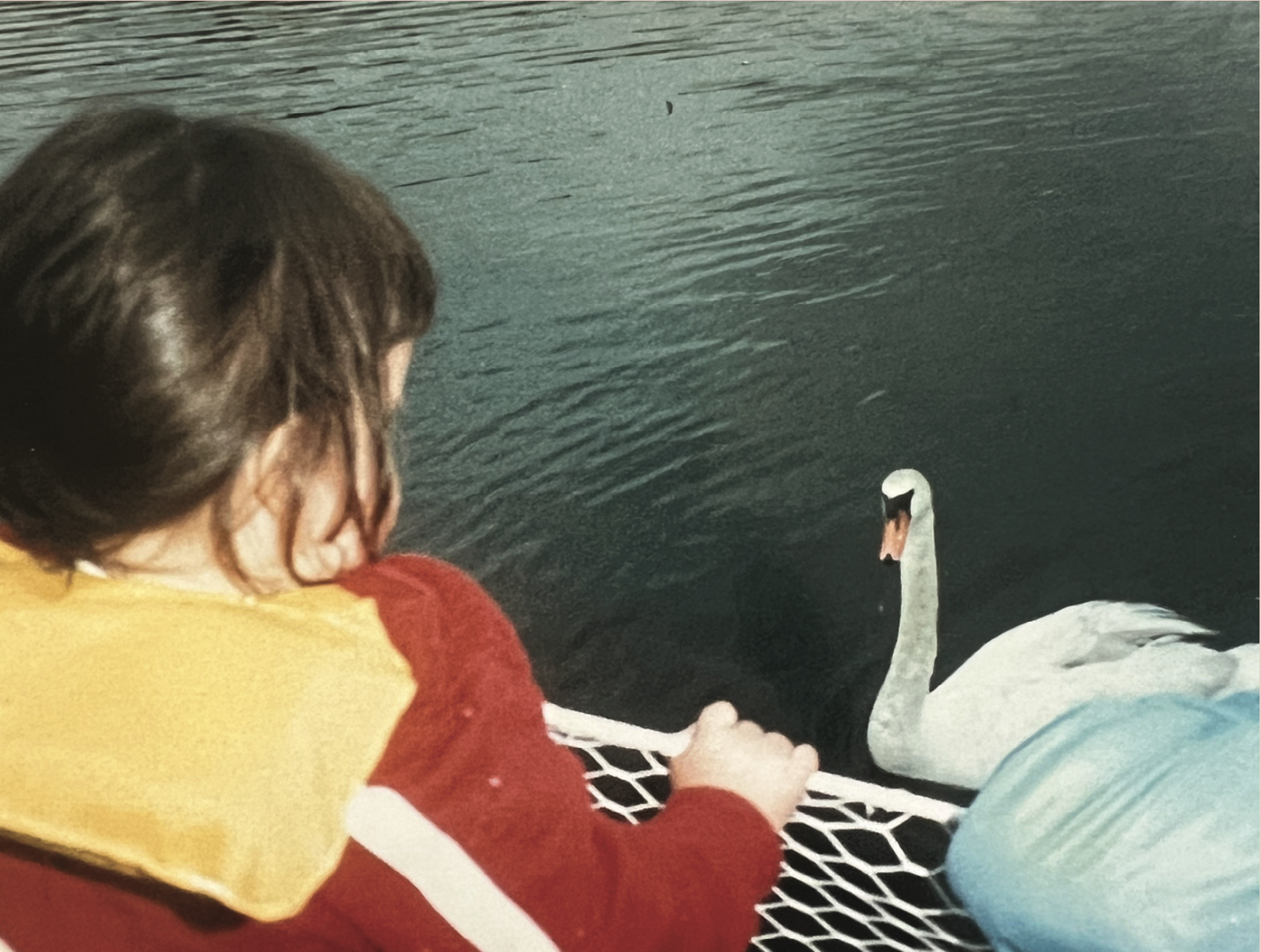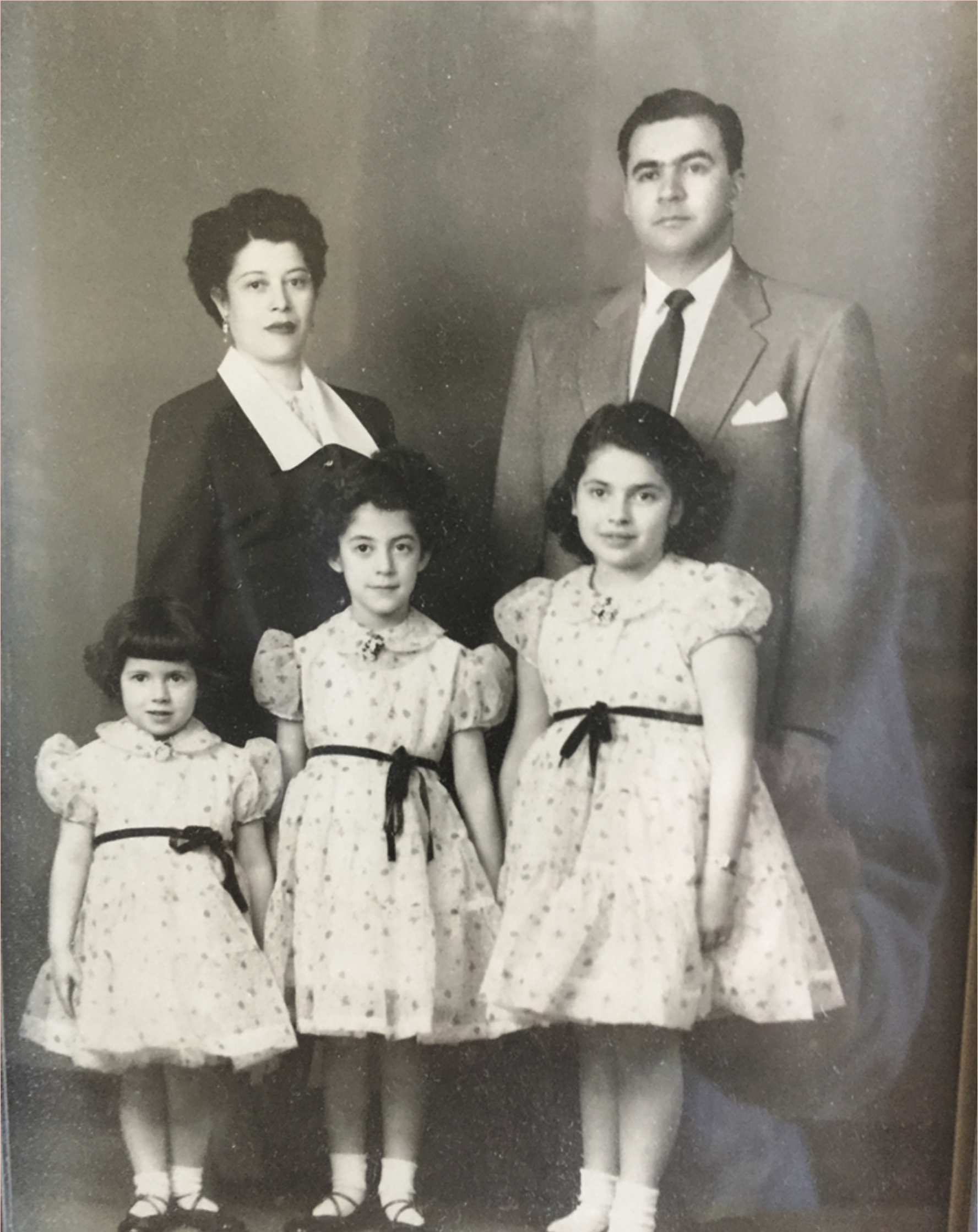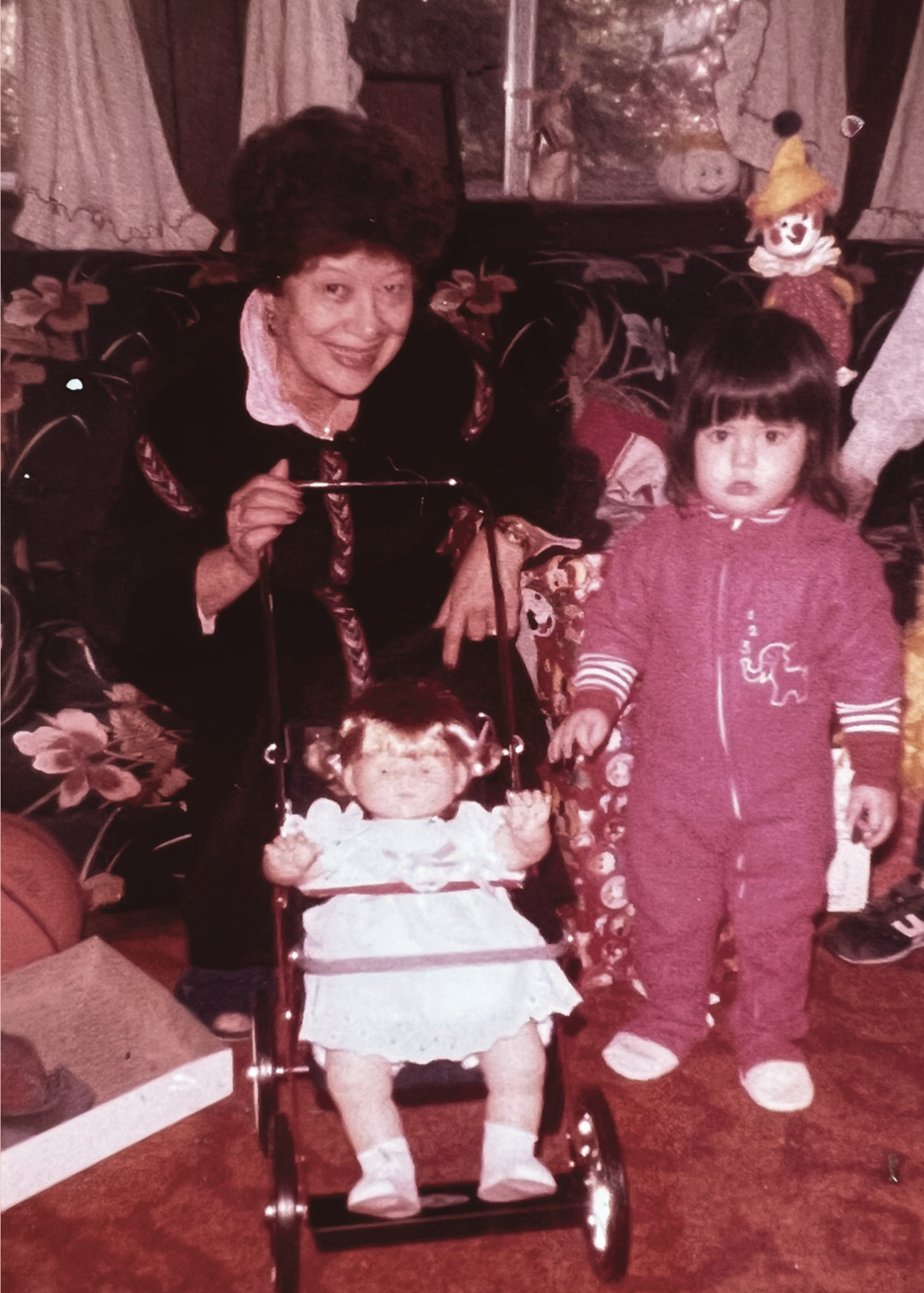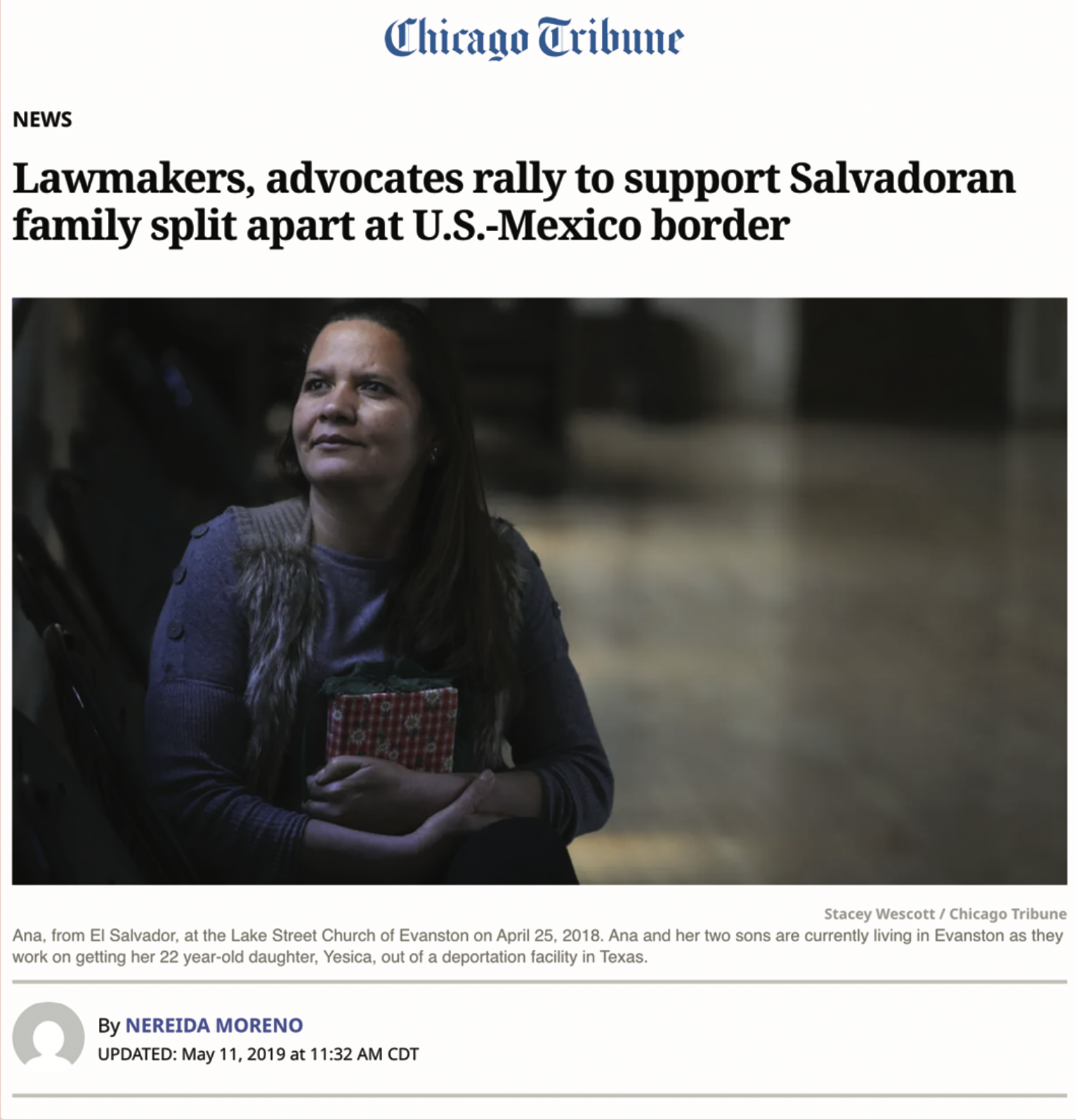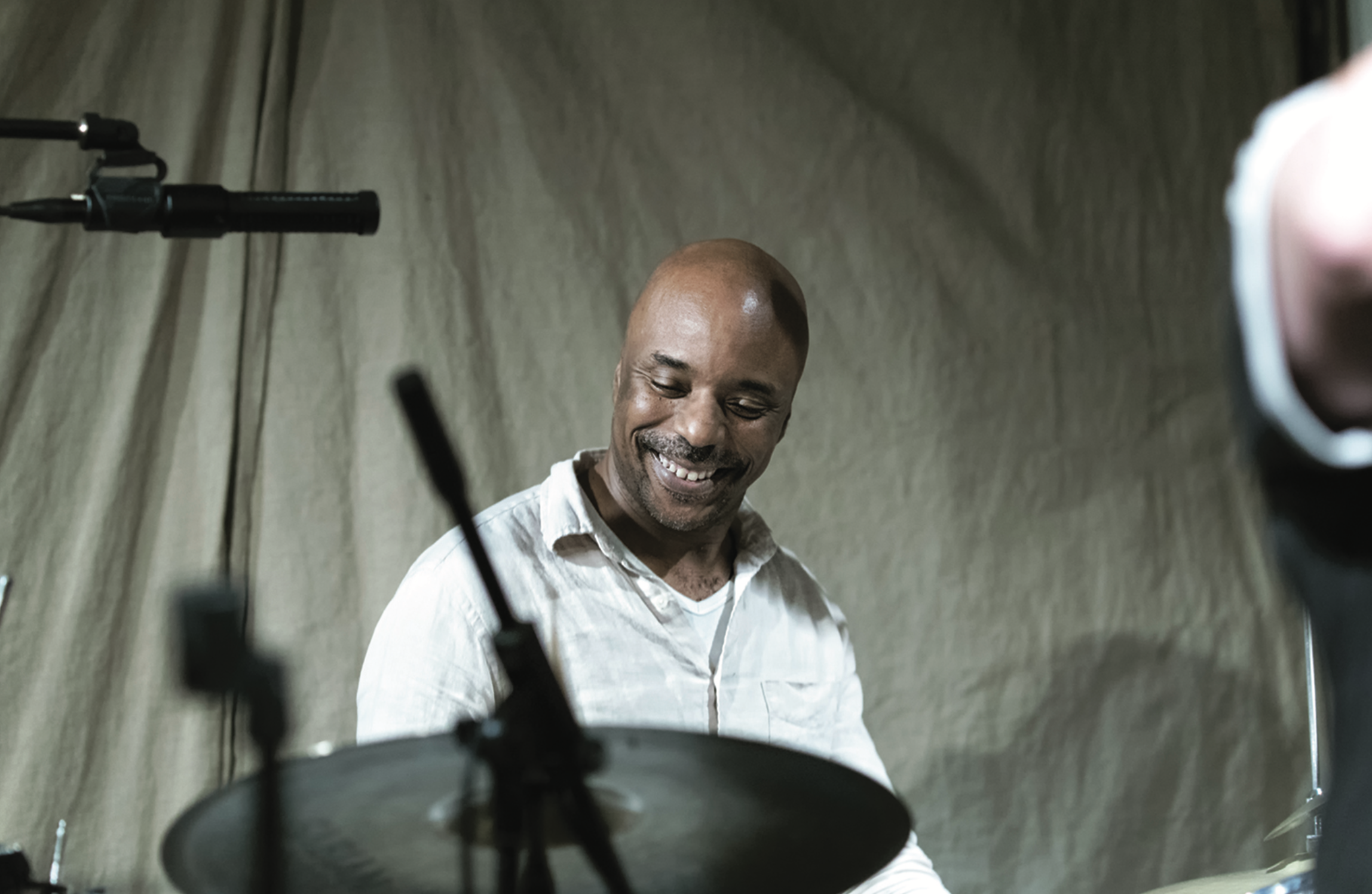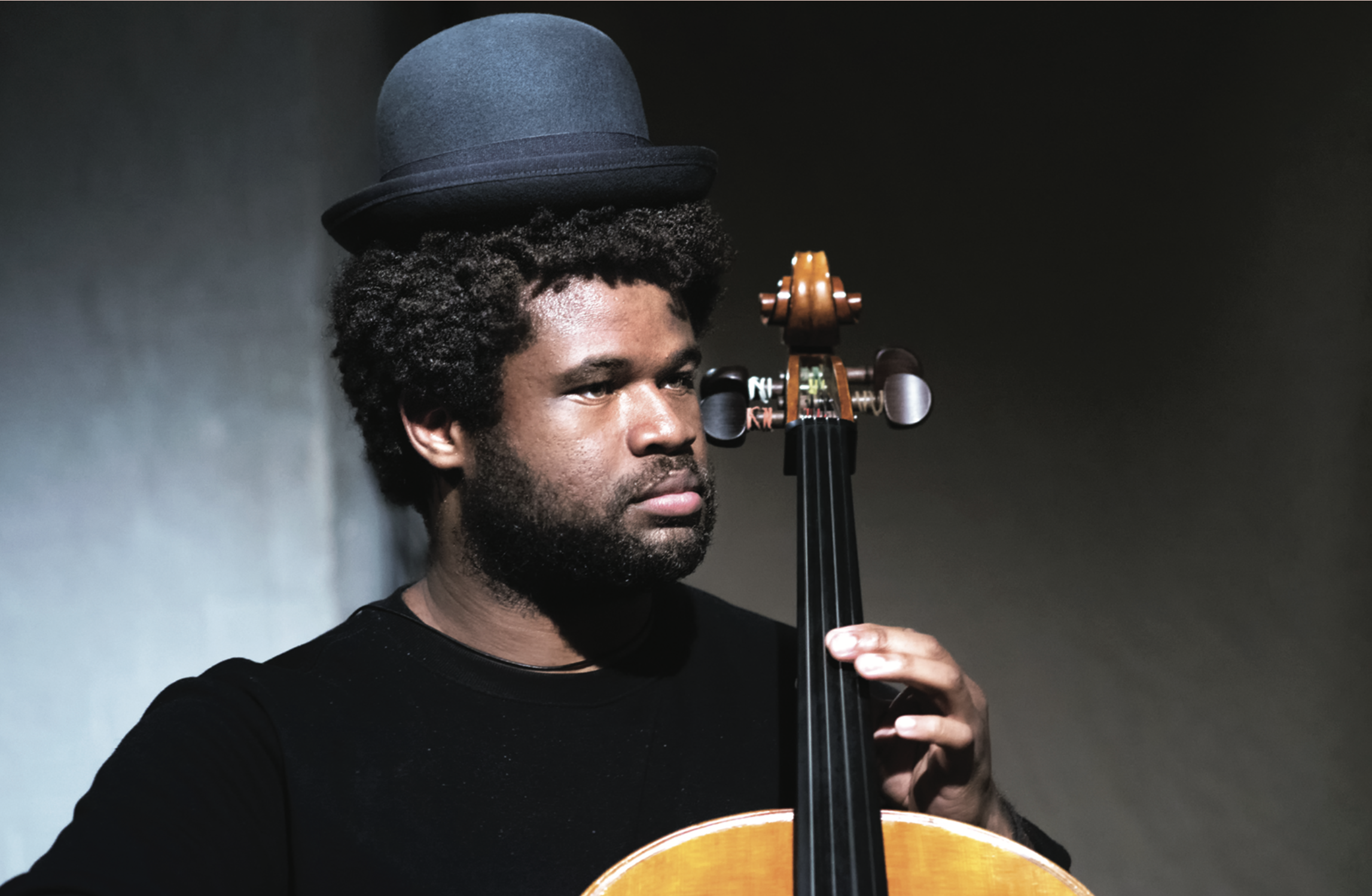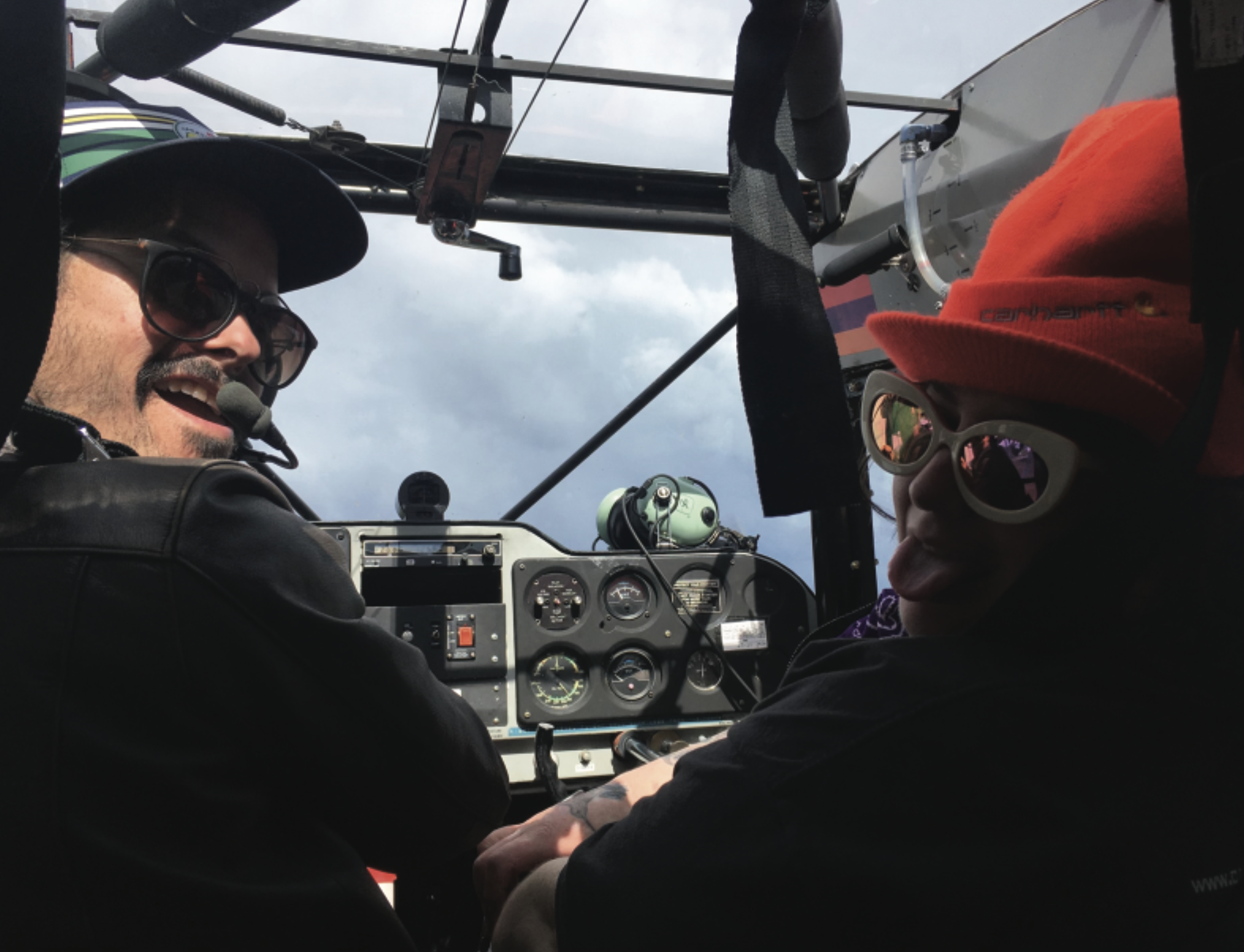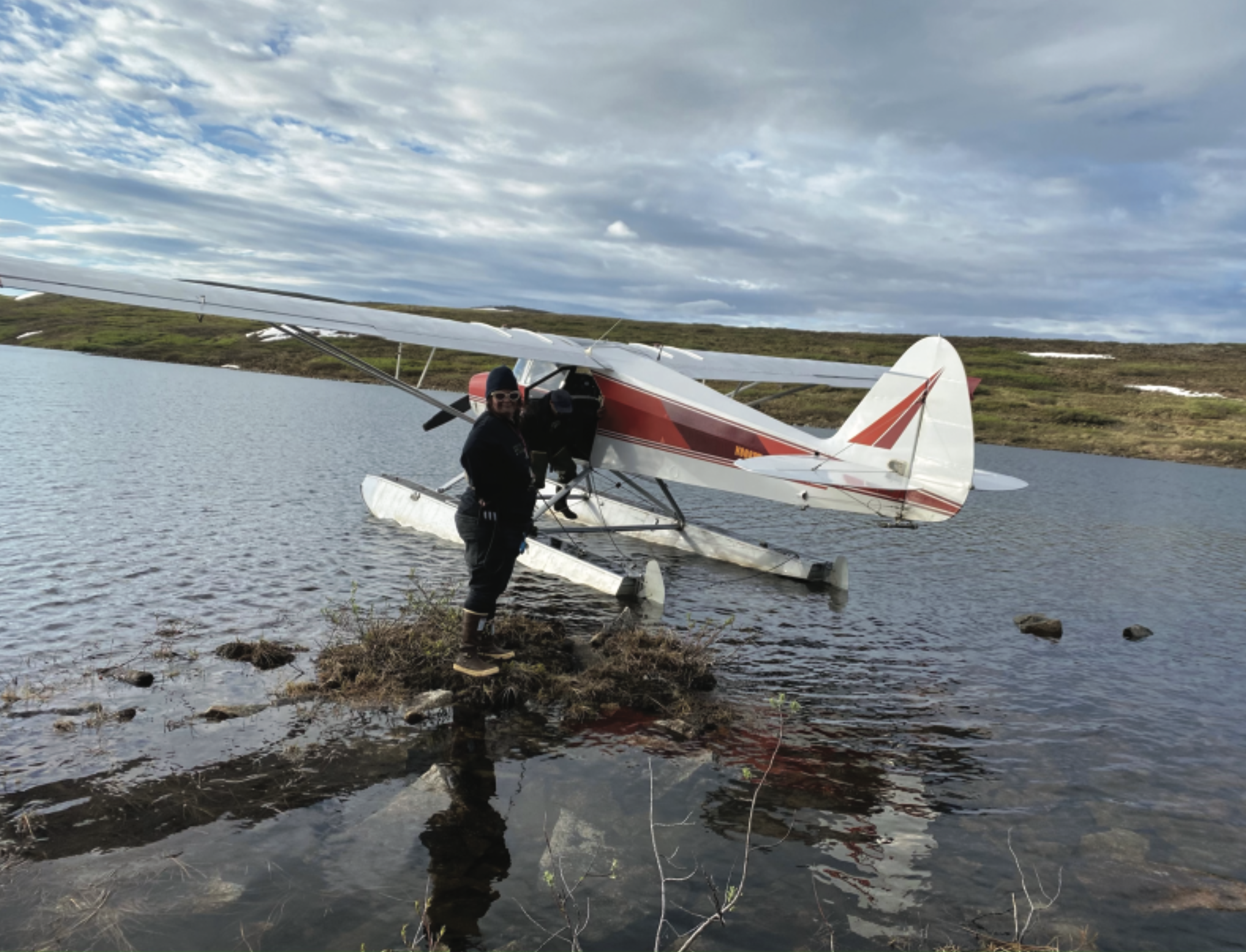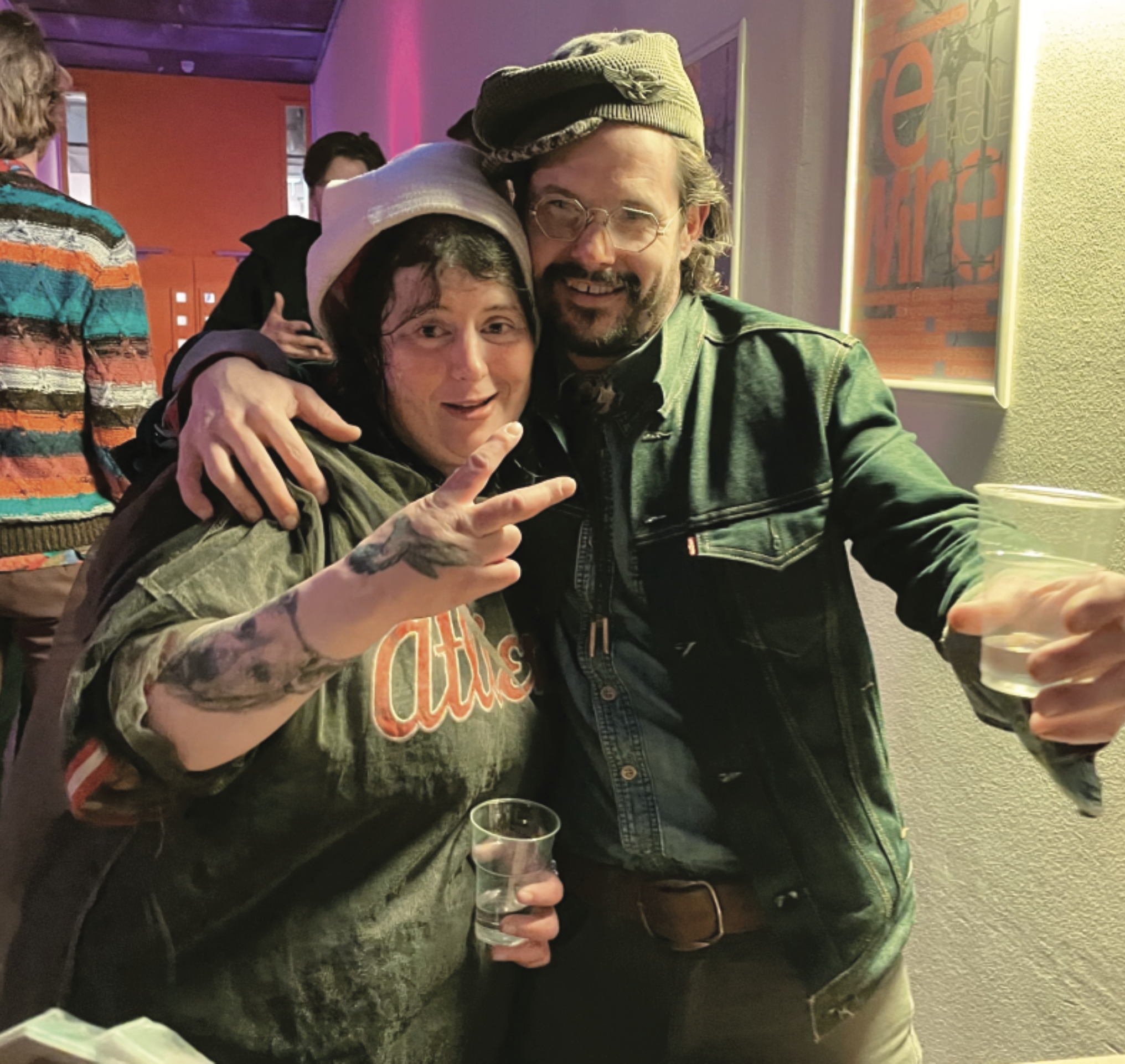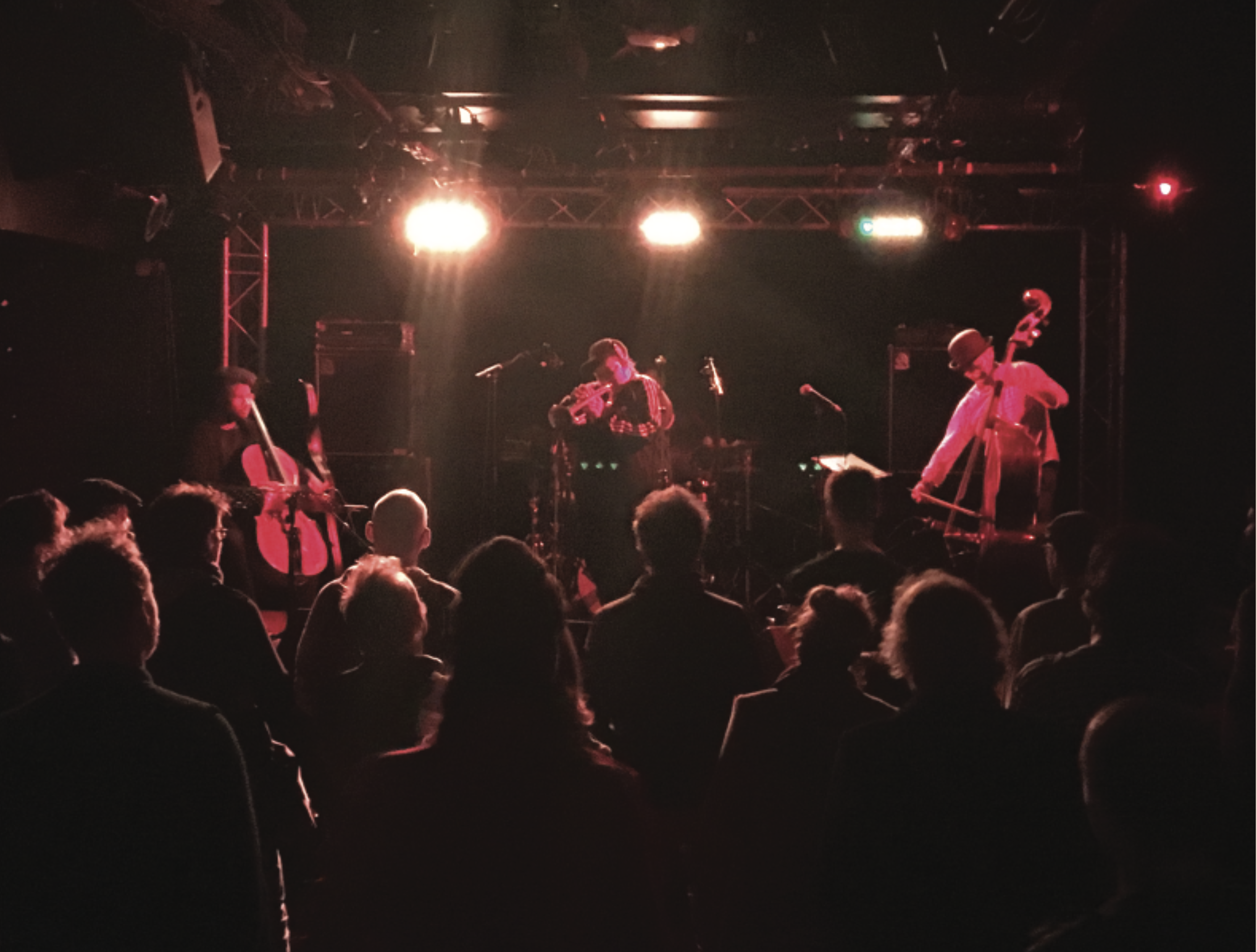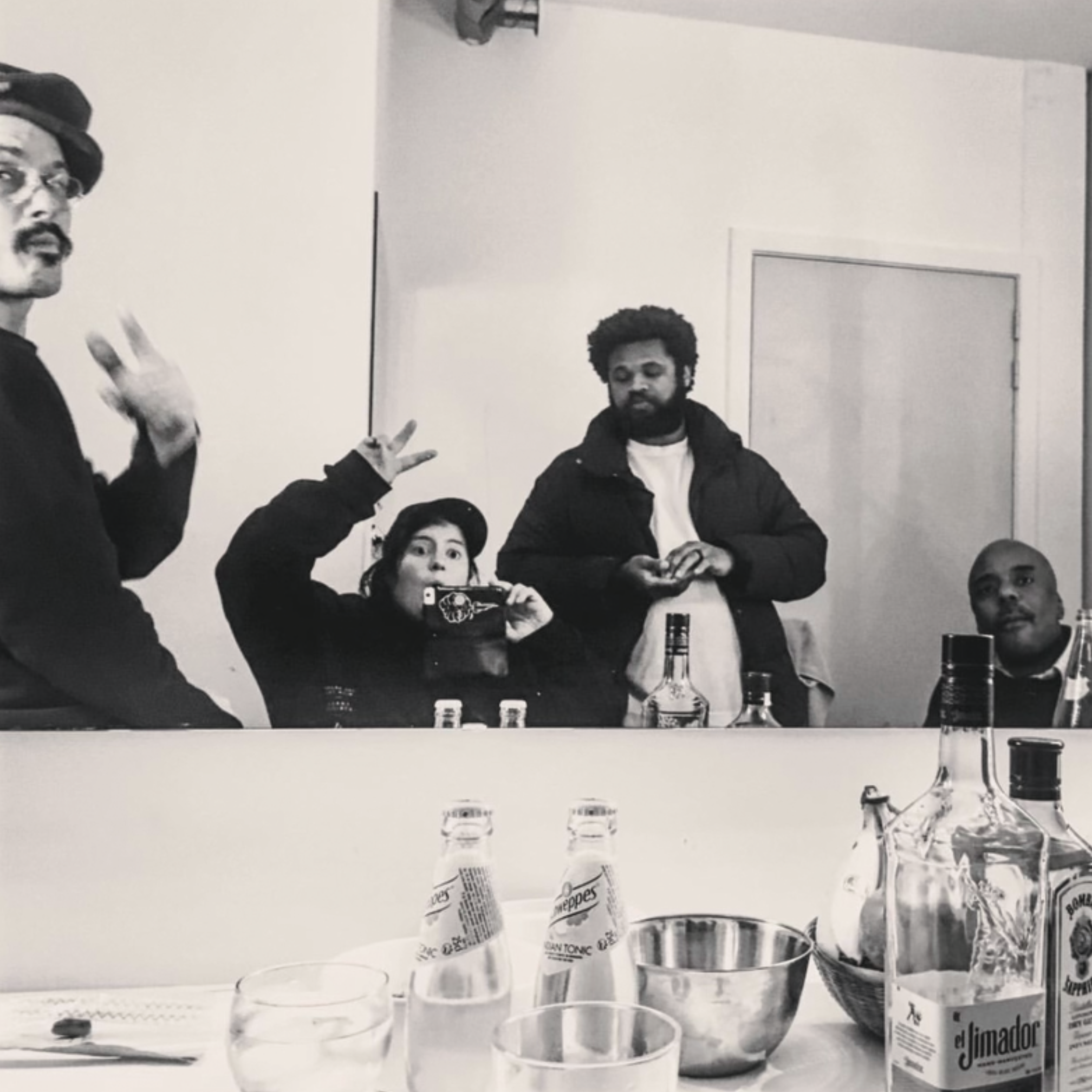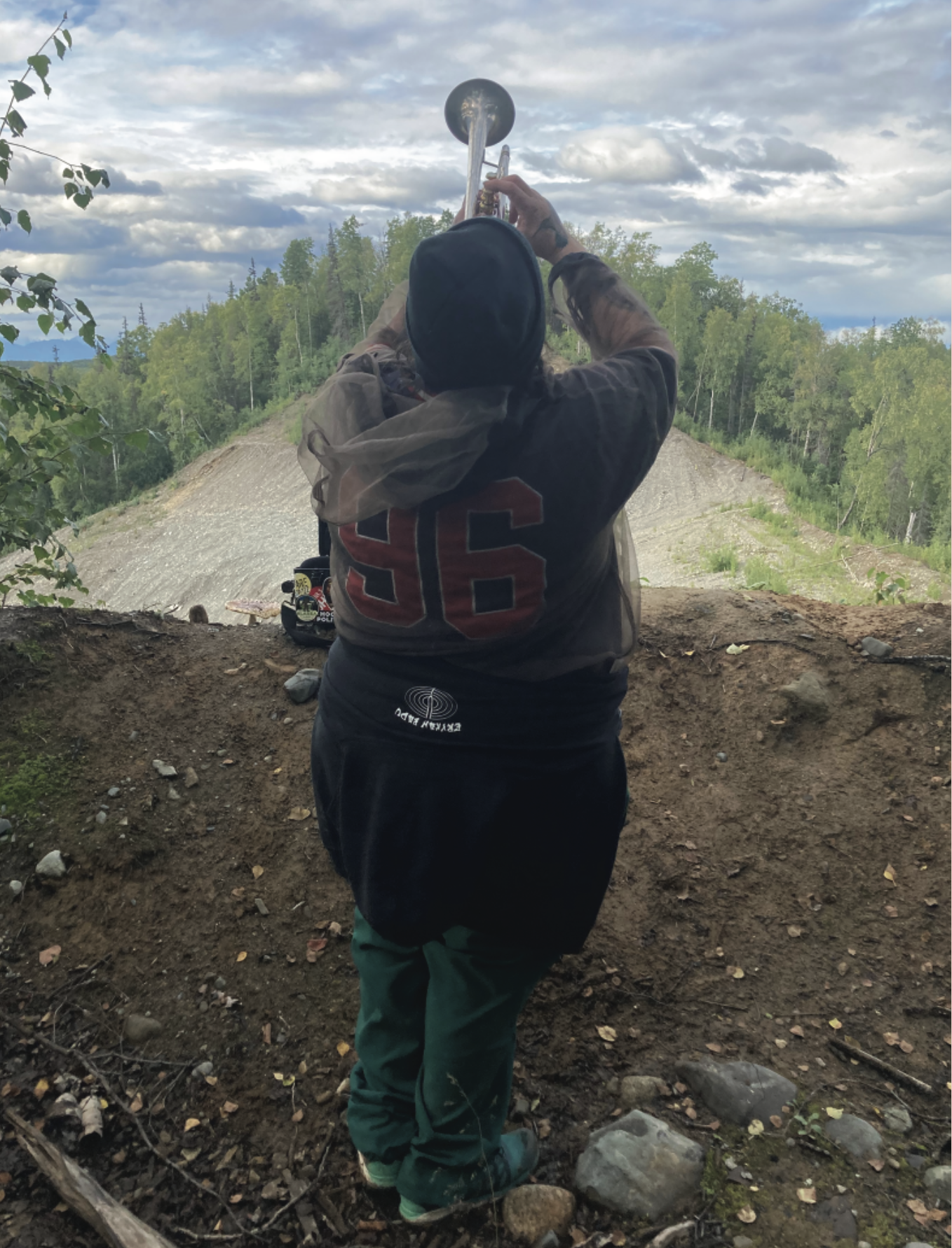International Anthem
The Eleventh Year
jaimie branch
FLY or DIE II:
bird dogs of paradise
IA11 Edition
jaimie branch’s FLY or DIE II: bird dogs of paradise, originally released in the fall of 2019, was hugely anticipated in its time.
Roughly a year before its release, and following the success of her debut Fly or Die album, branch whisked her incredible quartet across Europe for a string of performances. Across that November 2018 tour, the group stretched a songbook in-process to its limit, improvising en modo deconstructivo, tugging at the music’s edges and relentlessly morphing the sound of a four-fold liberation machine that included branch (trumpet), Chad Taylor (drums), Jason Ajemian (bass), and newcomer Lester St. Louis (cello), who had recently replaced Tomeka Reid.
Most of bird dogs of paradise was recorded in studio at Total Refreshment Centre over three days, and live at Café OTO over two nights that same week – at the tail end of the tour.
The album itself captures a very significant moment in the arc of branch's band. St. Louis’s presence had provided a fresh injection of virtuosic curiosity, and the interplay between him and Ajemian rejiggered the crew’s string-driven multi-rhythmic plonk swing while also refreshing their alternately aggressive and melodious heavy-bite bowing with an expanded pocket. It was a highly fertile foundation for branch to experiment and explore, reach for the nether regions of her instrument, and continue to focus and refine her flagship ensemble into a wholly original sound.
bird dogs of paradise also introduced the wider world to branch’s singing voice. “prayer for amerikkka pt. 1 & 2” - written and first performed by branch in Paris on the night of the 2018 US midterm elections - has since become a rallying cry for those who share her sense of justice in a world controlled by those who are seemingly unconcerned with it. And on “love song" (for assholes and clowns), branch shows us her cards with a wink and a smile. “So much beauty lies in the abstract of instrumental music,” branch says in the album’s original liner notes, “but being this ain’t a particularly beautiful time, I’ve chosen a more literal path. The voice is good for that.”
The IA11 Edition of FLY or DIE II: bird dogs of paradise comes on classic black 140-gram vinyl LP (pressed at Pallas in Germany, with lacquers cut by Daniel K at SST) inside a heavyweight reverse-board jacket, with a 16-page 11x11" insert booklet featuring previously-unpublished photos, two sets of new liner notes – the first by jaimie’s mom, Soledad “Sally” Branch, as told to Kate Branch, and the second by Fly or Die bassist Jason Ajemian – plus IARC 2025 obi strip and printed poly-lined printed inner-sleeve.
-
jaimie branch – trumpet, voice, synthesizer, percussion, bells, sneaker squeaks
Lester St. Louis – cello, percussion
Jason Ajemian – double bass, percussion
Chad Taylor – drums, xylophonewith special guests:
Ben LaMar Gay – voice (on track 2)
Marvin Tate – voice (on track 2)
Matt Schneider – 12-string guitar (on track 2)
Dan Bitney – percussion, synthesizer (on track 8)
Scott McNiece – egg (on track 8)All compositions by jaimie branch, except “birds of paradise,” “whales,” and “bird dogs of paradise” composed by jaimie branch, Lester St. Louis, Jason Ajemian & Chad Taylor; and “lesterlude” composed by Lester St. Louis.
Recorded mostly at Total Refreshment Centre (tracks 2–7 & 9) and Café OTO (tracks 1 & 8) in Dalston, London UK, November 20th–25th, 2018.
Edits & overdubs at Dave’s house in Pilsen, Chicago, December 2018.
Final dubs & mixing at Decade Studios in Old Town, Chicago, January 2019.
Mastered at Chicago Mastering Service in Garfield Park, Chicago, March 2019.Recorded by Dave Vettraino & David Allen
Recording Assisted by James Dunn & Kristian “Capitol K” Robinson
Edited by jaimie branch & Dave Vettraino
Mixed by David Allen & Dave Vettraino
Mastered by Shelly Steens
Cover Art by jaimie branch & John Herndon
Cover Design by Damon Locks & jaimie branch
Insert Cover Photo by Peter Gannushkin
Photos from TRC by Fabrice Bourgelle
Photos from Café OTO by Dawid Laskowski
Layout & Insert Design by Craig Hansen
IA11 Design & Layout by Aaron Lowell Denton
Executive Production by Scott McNiece & David Allen

jai jai
By Soledad “Sally” Branch
As told to Kate Branch (August 2025)
image: jaimie leading the Branch family band while performing “La Bamba” at the Unitarian Universalist Society at Shelter Rock on Long Island, NewYork. (photo courtesy of the Branch family, photographer unknown)
jaimie has been singing ever since she was old enough to hum. At age three, we would perform, with her dad on the guitar, songs like “La Bamba” and “Guantanamera.” She would always be the one right there in front, singing all the words in Spanish and English. Guajira, guantanamera/ yo soy un hombre sincero...
At the age of six, she wrote a song for a retiring reverend at our Unitarian Universalist Church on Long Island where we had lived. She wrote the song with my mom, her grandmother, they were very close. After they played it on the piano, jaimie and I wrote the notes down on paper. When jaimie performed it for the church, there was a choir behind her and a small band: piano, violin and guitar. She was wearing a little denim jumper. Her hair was long, black, bangs. She got up there very quietly and very slowly, somewhat shy, very serious, and said: “The name of the song is ‘My Dreams End in the Sky.’”
That was our girl.
jaimie, age 6, receiving the Suffolk County Music Award for best composition for “My Dreams End in the Sky.” (photo courtesy of the Branch family, photographer unknown)
jaimie’s affinity for birds started early; here, at age 2.5, on her family’s boat named “Soledad.” (photo courtesy of the Branch family, photographer unknown)
jaimie always was a person who had her ear to the ground to the injustices in the world, from when she was just a little one. She had a strong religious education and was surrounded by very smart, very liberal folks. At the time, the AIDS epidemic was all around us, and jaimie saw the terrible prejudice and ignorance around that. When she was nine, we had just moved to Kenilworth, Illinois, and she wanted to check out a book from the school library about a young boy named Ryan who had contracted HIV through a contaminated blood transfusion. And the librarian wouldn’t allow her to take it out, because it was “too advanced for her age.” I had to go to the library myself. “She’s an avid reader,” I said, “and she's very interested in these things....”
As jaimie got older, she experienced injustices directly. She didn't really fit in. She did not look or act like all the other children, but she was super innocent, and felt things very strongly. As she got older, she joined a lot of efforts, especially with the church, to be out there and advocate for various kinds of causes. By the eighth grade, she began rebelling, and ultimately became a soldier for those who were considered on the periphery, or “second class citizens.”
I don't know if it was just in la sangre, or what, but we came from a long line of strong women with incredible intuition. My mother, who was an amazing storyteller and had this real earthiness, spiritual side to her, shared so many stories with us about injustices back home in Colombia. The church was in cahoots with the government against the poor. All the times she had to dodge bullets to get home before curfew because they were under military control. And then, when she and my father came to the United States in 1947: it was time to return home, and my mother desperately wanted to, but a war had broken out in Bogotá called la guerra roja, and my mother's people said, “All of our land has been taken by the government. Don't come back.”
From left: jaimie’s mom, Maria Soledad, age 3, pictured with her aunts, Maria Cristina and Sarah Cecilia, and maternal grandparents, Ana Cecilia and Jorge Enrique Barbour, in Brooklyn, NY in 1953.
jai with Grandma Cecilia Barbour on Christmas morning, 1984. (photos courtesy of the Branch family, photographer unknown)
So they stayed and got their citizenship and eventually moved to a neighborhood in Brooklyn which would now be considered Sunset Park. At the time, there were no other South American families on the block. But in our apartment, a three-floor walk up above a toy shop, we danced and played our music. Inside, it was muy Latino.
It was around 2016 when I started helping the family jaimie speaks about in part two of “prayer for amerikkka.” At the time, I was a psychotherapist. But for 14 years prior to that, I had been working primarily with Latino families as a social worker in pediatric hospitals, and as a volunteer family counselor for private organizations. I helped parents of babies who did not have legal papers here, or who were severely poor and could not afford formula, clothes, and I would connect them with different programs that offered resources. I loved the people—these are people who would take the shirts off their backs to help you—and I missed the work.
So one day, I walked by this church in Evanston, Illinois that had a big sign out front that said, “We Are A Sanctuary Church.” And I walked straight in, and met a woman from El Salvador who was wearing an electronic ankle monitor. Her name was Ana, and she had two young boys with her. Her daughter,Yesica, was being detained at the border. She was only 19.
The family came over because their lives were in danger. The gangs that ruled El Salvador were after their daughter, wanting her to become a girlfriend of one of the guys in the gang, but her father would not allow it. One day, she was coming home from school, and the guy approached her, and her father stood between them, and that was it: he was shot in the middle of the plaza right in front of his daughter.
Ana, who sold leather shoes in the square, didn’t want to leave El Salvador, but she had no choice: the gang held her at gunpoint for refusing to pay them after they killed her husband. The only reason they didn’t shoot was because a bystander got in the way. So she took her children in the early hours of the morning, from one day to the next, and got over to the United States. It takes a lot of woman to be able to do that.
A passport photo of jaimie, taken in junior high. (photo courtesy of the Branch family, photographer unknown)
And even though the authorities at the border believed their story, they wouldn’t let Yesica into the country because she was over the age of 18. In truth, she had just turned 19. Only Ana and her two boys, who were 14 and 7 at the time, could apply for asylum. ICE sent Yesica back to El Salvador, where she hid in their home, the home that her family owned, before escaping to her grandmother's house.
Eventually, the gang found her, and proceeded to rape her and almost kill her.
Somehow, she made her way back over to the border in Texas, where she was detained for three years. It was a for-profit detention center, which is a whole other area of horror; the more people they detained, the more money they made. It’s a lot of what we know today, except now it's even worse.
By 2017 and 2018, my involvement in the family’s story grew even greater, fierce even.We would march together, and talk to the press, with me translating. I was very busy trying my best to help them.That’s when jaimie started getting interested in their story. “prayer for amerikkka part one and two” was her way of getting involved.
When jaimie asked if she could write a song about the family, she promised me she would not use their names. She did use mine, though. I was surprised at first when I heard it, though I remember her asking about my name, Soledad. She wanted to know about the history of my name, and what it meant. Solitude. Right away, she understood that “solitude” didn’t mean that you were alone, but rather you were individually strong enough to bring people together.
The fact that jaimie sang the actual meaning along with my name told me that she listened, and that, for her, I counted.
And the fact that she played so loud and with such pride—translating her screams into beautiful music—told me that the Latina in her was very much alive.


jai and J about to fly to Homer AK. (photo by Meredith Magher)
BIRD DOGS
By Jason Ajemian (August 2025)
There are two memories embedded in my brain of times jai and I spent laughing/crying together.
To be clear, laughing/crying happened a lot, literally countless instances over the course of our 20-plus-year friendship. Often about next to nothing substantial, one of us doing something goofy or ridiculous.
These two, though, are worth sharing with you here.
The first is from the last time I was with jai. It was August 14, 2022 and I was flying her in my small floatplane from Talkeetna, Alaska, where I now live and fly for a living, to Anchorage, where she was catching a commercial flight back to New York. I asked if she wanted to feel weightlessness. She was like, “Yeah! what’s that?” I said, “Tighten your seat belt, and hold onto the cross bar overhead.”
Flying along at 5,000 feet, I proceeded to push the plane forward into a quick dive to experience negative g-force, which is the force that happens when bodies accelerate in the opposite direction of gravity.That quick push makes the plane descend as our bodies stay in level flight, floating into the seatbelts and momentarily defying gravity. Her bright red face in that exact moment is burned into my memory, the first thing I see when someone says jaimie’s name. She flipped out with joy, laughing, crying. She wanted to do it again and again. Man, I wish we could do it again.
jaimie getting out of the float plane for her remote AK birthday party at Shadow Lake June 16th, 2020. (photo by Jason Ajemian)
The second experience was when I showed jai the videos of male birds of paradise’s dramatic peacocking performances used to attract female mates. Some show off their tails that feature ornaments to tickle the face of prospective dates. Others have eyes that turn from an electric blue to a neon yellow, as well as iridescent throat patches. They bow, puff up their feathers, whirl, shuffle, side step. On repeat, we watched again and again, hysterically laughing to the point of crying, as these birds transformed into something completely unexplainable and outrageously alien. Like a painting or some immaculate, perfect piece of artwork. She instantly related the birds to us, the Fly or Dies—we Bird Dogs flying overhead, peacocking, creating, looking for and fighting to find our paradise.
But...
Life's a Mother Fucker.
No doubt about it.
Sitting down to write these notes...
Diving into this cavern trying to:
Think,
Share,
What this band was/is, in/for, her/my life.
Brainstorming
What to say?
How much to say?
How much is too much?
Remembering
How times morphed those memories...
The loss is present, the pain fresh.
Apples violate my esophagus
Sadness boa constricts the lungs
Blurring words through water — like the Alaskan Range
looking as an Impressionist Painting.
Lines blurred by frozen water.
Particles blowing across peaks.
Don't want to go in there.
A bad day to fly.
Turbulent air, a rodeo, a gorgeous roller coaster.
We talkin'
Life with jai...
One
We flying.
100%
Backstage at Rewire Festival in The Hague, 2022. (photo by Jeremiah Chiu)
There are a few things that are important to understand leading up to FOD II. Most consequential was that Tomeka Reid wouldn’t be able to commit to the band anymore. Her quartet was taking off, and her musical visions were coming into focus and her band leader star was rising.
jai was looking for someone to replace Tomeka, which really seemed like a tall task. I believe at first it was inconceivable to think of a cello replacement.We did a handful of gigs with various different instruments, most notably one for winter jazz fest with Joel Ross on vibraphone. He played the hell out of the music and was all up in the cut, but CT and I got a feeling that something was missing for jai. Subconsciously, I think she knew the band was a string thing.
By then, the spring of 2018 she started talking about this young cello player named Lester. “I think he’s a baby genius,” she’d say of Lester who was, I don’t know, maybe 25 when we did our first gig together at Bait & Tackle in Redhook, where jai lived. Then we did a gig in Philly at The Rotunda, and a third for Pioneer Valley Jazz series in western Massachusetts. It was clear that jai’s intuition was right: Tomeka needed to be replaced with another cello player. The dynamic blend of the cello and bass as two linear instruments sonically flowing with their similar tamber would blur the lines into an almost chordal instrument.This interplay between the strings was really important for the sound of FOD.
But CT and I had a requirement; as well as, some reservations.
1. Lester’s got to get in the groove with us and not float on top with jai too much.
2.We both are old enough to be his parents!
Here’s the thing about Lester: he might be one of the smartest, most gifted persons I have ever met. Just for a taste...
We were in Paris at New Morning on our first tour together, the one that formed this record. Lester and I were enjoying a smoke outside the club. Some folks next to us were speaking in Mandarin, apparently about us. And Lester just starts talking to them—in freakin’ Mandarin! And mind you, before this, I had overheard him in two or three other convos speaking two or three other languages. At this point, I just had to walk away, convinced my guy’s an alien, a rain man, my mind was messed up. I remember asking him afterwards, “What the hell?” His answer went something like, “You know the basics of a few languages, and you can pretty much figure out the rest....” Oh please!
FOD at New Morning in Paris, where jaimie grabbed the mic and sang prayer for amerikkka for the first time, the night of the US midterm election, November 6th, 2018. (photo by Scott McNiece).
Musically, Lester was on the level. He could be in groove or float melodically on top whenever he wanted. Once, there was an all-night jam session in Wroclaw Poland, where he played every instrument. And I mean everything: he was on dudes’ horns, reeds, brass, clarinets, the organ, the drums, holding court.
So yes, Lester is, as jai would say, “a baby genius.” (And yes, Les, you’re still the FOD baby!) Something you can clearly hear all over this record, especially on his solo transition “lesterlude,” and especially live, when he almost orchestrally morphed us out of “prayer” and into “23 and me.” He didn’t need our help, as none of us did. All we needed was our companionship, and the space to be ourselves. Which is what FOD was to me: airspace.
Now that Lester was in the band, we had a month-long tour scheduled and a plan to record FOD II at Total Refreshment Centre in London for a few days at the end of the trip. All the music was put together and worked out during that tour. jai didn’t give us any charts or ideas prior. It wasn’t right away either.
We got back into the swing of things for a week or so playing FOD I and improvising before jai started introducing new material. She brought in sketches that we would work out during sound check and then play later that night at the gig. We’d morph and develop those ideas over the next few nights by addressing issues and discoveries made during those performances on the bandstand. After a few days, we’d have the kinks worked out for one tune, and then she’d introduce another. And then another. The second half of the tour became a workshop in aerodynamics, introducing us to the new engine and control surfaces we’d use for each flight.We tested what worked, what didn’t; what lifted, what dragged; how much weight with what amount of thrust was needed. This process included the transitions, how we got between the songs in a continuous flow, what, where and how we moved. Each idea, style, and feeling sent us into the spirit world.
A perfect example is “nuevo,” which wasn’t brought to life until we got in the studio at TRC. jai had a melody sketch and vibe she was looking for, although at this point it was still abstract. She and Chad worked it out, and once Chad found the beat, the melody fell perfectly into place for Lester and I to write our parts. The version that ends up on this record is from Café OTO in London, where we did a two-night stint at the end of the recording session.The ending percussion section with Les and I rolling through the crowd on percussion, and CT melodically morphing the beat, allowed jai to play, preach, shout, sing and generally have the freedom to fly anywhere she pleased... with the horn, sometimes all profound like with words or screams. Other times she’d just dj-scratch with her sneakers on the stage.We’d stretch and float on the vibes of each presence the performance gave us.
And with jai, the presence always felt right. Like being home.
Whether on-or off-stage, chilling by the river in AK, fabricating an airplane together... For me, it was home. Other times, although crazy, felt just as they should. jai being held at gunpoint by six 20-year-old German cops, for god only knows what. The two of us were not allowed on a flight by some wack Polish Airlines people wanting us to check the bass in a soft case.We stood our ground and hired a cab and took a six-hour drive to Budapest.
Sometimes that's the cost of standing by your principles and your friends.
Through the years, I’ve seen jai tackle many suckers like a linebacker. She once sucker-punched a good friend of mine for his political views. Broke his glasses and walked out, didn’t look back.
Somehow, she never rolled me like that. Honestly, I expected it, maybe even deserved it, a time or two.
FOD at Creative Alliance in Baltimore, with jai’s artwork on the stage, March 20, 2022. (photographer unknown)
From the beginning with jai, when she started coming around my weekly gigs in Chicago, Heaven Gallery, Rodan and the tons of incredible musicians, no one else was always welcome or expected to hop on stage with any band I was playing with. After I moved to NYC and came back to play in the CHI, she would just roll up, hop on the set. Even during the times when she was blacklisted with the northside gatekeepers, she would roll straight through that crowd. Maybe it’s something I didn’t fully understand until much later when we both started singing (something that got me blacklisted as well), because then I could hear and feel this similar special idiosyncratic quality that our voices shared. I can’t explain it cause I still can’t fully step outside of it, the feeling, the feel of resonating with jai.
Earlier on this tour, somewhere in Scandinavia, jai started feeling low. She was frustrated by some things going on in the world, similar to today, fascism, diabolical demons having power in our country and some wack vibes being thrown our way on the road.
After this particular gig in Scandinavia, where these promoters quickly showed us the green room, half-introduced us to the sound guy, and then split for a private dinner party, jai and I went out and stayed out. We got back to the hotel sometime in the early morning after the bars had closed. There was a piano down a long hallway in the lobby, and jai sat down to find her happy place with the keys. It was a deep exhale after a long frustrating day on the road. I sat and listened to a riff and chord progression I would later come to know as “love song.”
All of a sudden the concierge came running down the hall, yelling: “You can’t play the piano, people are sleeping!”
“I’m playing really soft,” jai said, “it’s nice, isn’t it?”
The woman grew more aggressive, and attempted to shut the piano on jai’s hands. And that was that!
jai flew up: “You want me to be loud?” — banging on the piano, kicking the stool out, dropping her elbows on the keys and screaming at the woman — “Is this what you want? Is this loud? What, you don’t like music?”
After jai rolled out, I just sat there looking at the woman, shaking my head: “What you did was totally uncalled for!”
The next time I heard, and played that bassline, jai was singing the words: “It’s a love song, for ass holes and clowns.” This captures jai’s consciousness and love in real time. Deep down, I think she knew she wouldn’t be here for a long time, and she had to fight. She couldn’t hold back the anger and disappointment she had in these moments, for the people she deeply loved. She knew there was a better way. Her exploding with emotion on the lameness of people would always turn into a deep self reflection and ultimate love for the world. A hope for us all to be better and more loving to each other and this marvelous natural world around us.The inalienable human rights and respect that everyone deserves. What makes me lose my shit and literally have to walk away from these words was her potential. Where her music was going and her connection with all of you that was waiting to happen. She was coming for your hearts, aggressively...maybe even brutally. But her compassion, empathy and love was undeniable.
FOD backstage in Oostende, Belgium. (photo by jaimie branch)
“We fly together or we die alone” is something jai said often when describing FOD. That message and her voice have been ringing in my head a lot since August of 2022. While it’s true that most of us do die alone, I’ll never stop wishing I could have been there with her in those last moments. But in this life, we did fucking fly! We flew on some universal vibrations and we’ll fly again on another plane as well. I know that. And these flights we created together, on stage as a band, with you, the fans, transcend life and death; it's a vibration that resonates through the earth and into the constellations. Riding on top is jai’s beautiful, in-your-face gargantuan heart.
Even when the mountains are blurred, the winds are blowing and the ride may get rough. We got to fly. In this life, we got to fly and cherish these rare moments of pure beauty.
Forever! FLY OR DIE. Love you jaimie — “It’s spelled with two i’s, i ain’t no cyclopes!”
jai getting down with an ensemble of sled dogs in Talkeetna AK... she'd blow a bunch then crack up laughing while all the dogs howled for the next 5/10 minutes, then do it again!!! August 13th, 2022. (photo by Jason Ajemian)
Photo by Dawid Laskowski
jaimie branch
About
First and foremost, jaimie “Breezy” branch (intentionally punctuated as all-lower-case) was a trumpet player. Whether it was the blast of her horn’s long steady full-bodied tone, or the expressiveness she’d add with plunger mutes and harmonizing looped effects, branch played the trumpet like she was born to, reasserting her love for and fascination with the instrument each and every time she brought it to her lips. If you need one reason to know why jaimie branch was a special musical force, start there.
International Anthem
The Eleventh Year
On December 2nd, 2024, we marked the ten-year anniversary of our first release.
With a full decade under our belt – ten years of commitment to a growing community of artists, and our original mission statement ("to vitalize demand for boundary defying music," among other things) – we've spent a lot of time thinking about how we'd like to celebrate this milestone. What we keep coming back to is: desire to use this opportunity to revisit and revivify music and memories from our first decade; but keeping true to our ethos of always looking forward, all the way.
In that spirit, across 2025, we'll be rolling out a series of releases and events under the IA11 banner. Celebrating our eleventh year. Doing our best to retell essential, foundational stories from our past, while keeping our hearts and minds fixed on the present. Trying to establish new standards that can help carry our mission through another decade of work – and hopefully more.
Stay tuned for releases and news.





